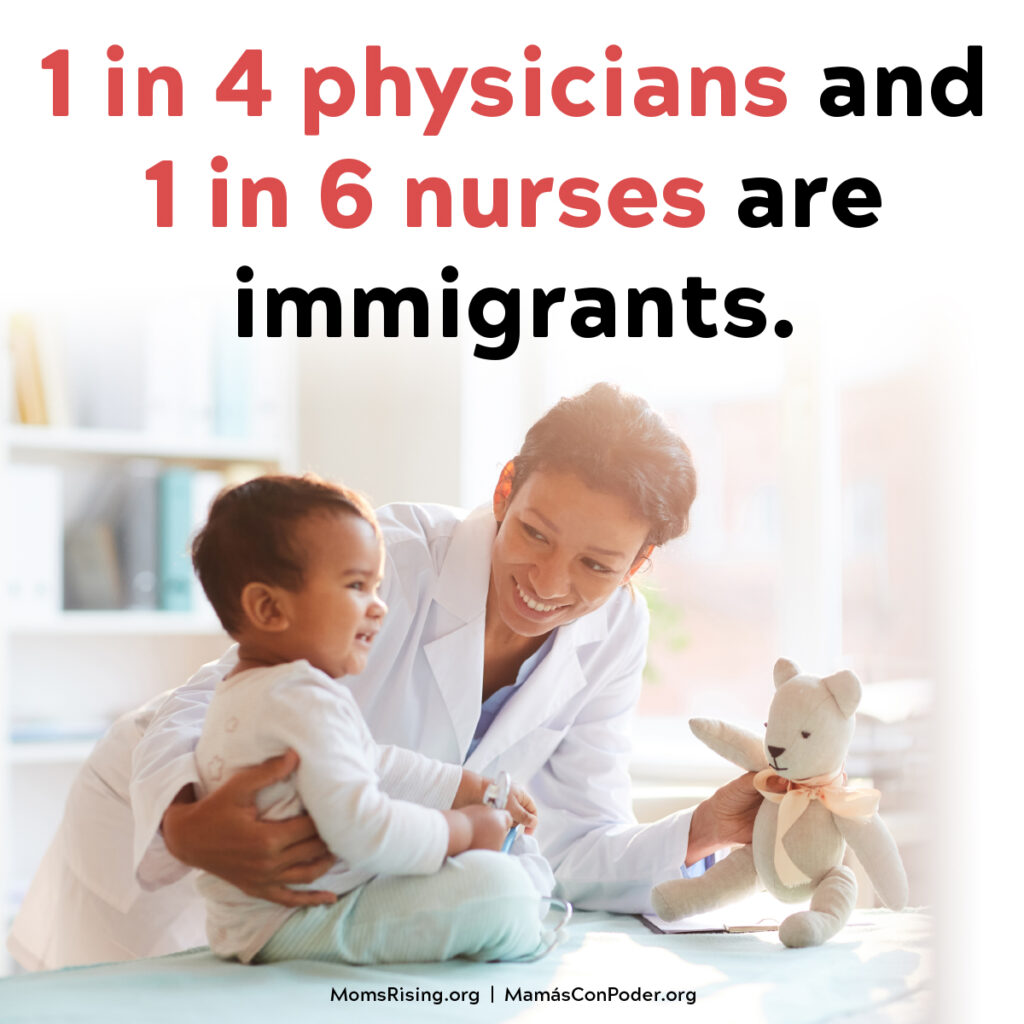I am an immigrant.
It was serendipitous that I was in a meeting with a recent immigrant when I was thinking about just what to say about my own immigrant experience in this sponsored post I’m writing in partnership with MomsRising (Spanish site is here). I can’t quite say it was a journey since I was a toddler brought here with my family, but our paths and experiences are more parallel than divergent. He arrived in the US just a few years ago, while I have been here nearly 50 years. We spoke about how the world views us, especially in the throes of this pandemic. We reflected on the promise of America, promises broken and renewed. I’ve been a United States citizen my whole adult life, making me both an immigrant and an American. We can hold both identities in the same space with pride, reverence, and patriotism. I am a misshapen puzzle piece who no longer fits neatly into either the world I came from or the one I inhabit now.
It’s never been easy to be brown in America.
I’m othered upon first impression. My American accent and sometimes Southern twang poses an identity conundrum furthered by my distinctly non-Indian last name. Even my maiden name, Das, is often perceived as ethnically ambiguous or European. When I had a job that required lots of phone interactions, people always asked if I was “from good German or Scandinavian stock.” I chuckled, imagining what they would think about a five foot tall Indian woman on the other end of the line. Let’s just say, people rarely had poker face when they met me in person. I was often met with wide eyes and a chorus of, “Um, oh, I thought…you’d be taller.”
I grew up with parents who have a foreign accent. Nevermind that they speak four languages. I was made fun of for what I brought for lunch. Those kids now would be begging me for some tandoori chicken leftovers. I was teased mercilessly for all this as I navigated embracing my heritage and assimilating into a world that would eventually never really welcome me. Mayflower immigrants always trumped my family’s variety of immigrants. No one can pronounce my name, there are no lineages to point to, DNA tests reveal nothing of value, and microaggressions abound. But still, thanks to the myth of the model minority, I have had it relatively easy. It pains me to see how immigrants are regarded in my community. The racism and misperceptions run amok in ways both innocuous and obvious. We switched medical providers mid-care for my son because the doctor’s staff and fellow patients were wantonly trashing immigrants right in front of me in the waiting room while they were cheering on building a wall. I looked at them dumbfounded, mouth literally agape, and watched as they guffawed. I was sickened.
We take immigrants for granted.
Consider this in North Carolina:
- Foreign born share of all essential workers: 11.2 percent (2018) (2020, Center for Migration Studies)
○ Foreign born share of entire labor force: 10.9 percent
- There are 7,600 DACA recipients in North Carolina working in occupations on the frontlines (i.e. health care, education, food-related jobs) (American Progress)
I joke that I never saw anyone who looks like me on television until COVID struck. It seems that every other doctor and public health authority is an immigrant or child of immigrants. Healthcare workers are literally putting their lives on the line for us from fields to warehouses to operating rooms. One in six nurses and one in four physicians are immigrants. Did you realize that 70% of farmworkers and 40% of food packers are immigrants? I’ve had an insider’s peek at the pork and poultry industries in my state, and I can attest to this. I’ve visited schools around the state that prepare for the children of migrant workers each spring. I have worked with some of these uprooted families who endure toxic stress and trauma that the pandemic has exacerbated. Immigrants are elevating our state and nation at all levels. Yet, we don’t see ourselves represented in the corridors of decision-making bodies from boardrooms to congressional chambers. But we are more than a statistic.

The government’s response to COVID must reflect immigrants’ contributions to the health of our society and economic recovery. Let’s remember that choice is a luxury not afforded to many. Low wage workers often have no economic choice other than to return to work, sometimes in unsafe conditions, and feel trapped while fearing for their safety, health, and even their lives. It’s up to us to lift our voices to ensure they are protected. America’s recovery is incumbent upon the contributions of immigrants. Healthcare. Agriculture. Essential services. Our very wellbeing and nourishment. On the backs and in the hands of immigrants.
It’s not cliche to say our nation is built on immigrants from the moment our founders colonized this land. The immigrant spirit adds color and flavor to America, literally and figuratively. We are better, stronger, richer, and wiser because of immigrants from all over the world. Let’s keep it that way.
Use your voice to support immigrants.
- Please take 5 seconds to sign the petition to implore Congress to include immigrants in COVID relief packages. Here’s the petition in Spanish.
- Share this post and the petition. Now is a good time to use your outside voice.
MomsRising is replete with resources. I find it’s always a great place to start to learn about issues in my community and what I, a mom, volunteer, fellow resident, can do.
Disclosure: This post is in partnership with MomsRising. #ImmigrantsAreEssential #MomsRisingPartner #spon
